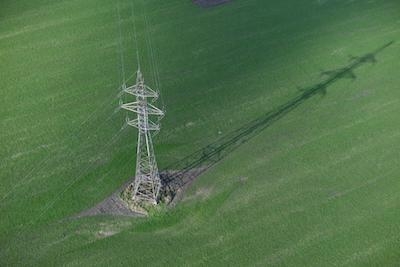Compares The Advantages Of Buying A Drone Or Hiring An Inspection Company
Technological advances have streamlined manual processes in almost every industry. With drones and helicopters leading the forefront of asset inspections, the electricity sector is no exclusion. As technology becomes more accessible and customizable, many power distributors and operators are choosing to purchase drones and do inspections themselves, while others are choosing to hire companies that specialize in performing asset inspections.

With both options having a wide range of benefitting factors, it can be hard to know which one is best for individual companies. This article will delve a little deeper into the differences between these two methods.
When it comes to power lines and preventing or correcting outages, speed is always a high priority. In case of emergencies, self-owned drones are without question the fastest and most efficient method of inspection. Being able to deploy a drone during or directly following a crisis is not something with which inspection companies could compete. The opposite is true for preventive inspections under normal conditions. Hundreds of kilometers can be inspected by a qualified team of inspectors in as little as a few hours with the use of a single helicopter flight over a power grid. A self-owned drone would more than likely take a multitude of flights due to the potential inexperience of drone operators, laws requiring the drone to remain in the visual line of sight, and most importantly the likelihood of drones crashing when flying near power lines. Even though it sounds like a great idea to equip all operational crews with drones, drones are quite complicated to fly.
Many of the companies selling drones for inspection purposes also provide analytical services for the data collected. This service can be helpful, if not instrumental, for distributors or operators who often cannot sift through that kind of data. Due to the quality and possible issues that occur when acquiring data, it can be a time-consuming and lengthy process to analyze the data. While inspection companies have whole teams of analyzation experts that are up to date on the needs of the power grid distributor or operator and are being provided with data from missions that were specifically planned to provide the best results. These factors can allow companies that specialize in asset inspection to provide results on analyzed data much faster than the service teams provided by drone producers.
Drones purchased by distributors or operators are often chosen based upon their user-friendliness and economical costs. On the other hand, the equipment used by inspection companies typically employs technology such as lidar, IR, high-resolution capabilities and is usually expensive and difficult to operate.
The data output from these two methods of inspection varies greatly and depending on the need can fulfill vastly different demands. Self-owned drones are perfect for disaster recovery, while everyday monitoring and maintenance require the much more precise data and images that inspection companies can supply.
The difference in price between the two options may seem easy to compare when first looking at the situation. After all, a one-time expense to buy a drone vs. the continual costs accrued from hiring a team is easy math. Often, distributors and operators that choose to buy a drone for economic reasons are not taking into account the amount that can be saved due to data from a precise high-quality inspection or the potential costs associated with keeping staff that can work with drones– especially bearing the risk of keeping the personnel essential to this operation. The precise data and clear views of monetary requirements provided by inspection companies can equip utility companies with the tools necessary to prevent failures, accidents, and interruptions.
This article has hopefully helped enable power grid distributors and operators to make a more informed decision when choosing the inspection methods best for each power grid and situation.
(Image provided with Laserpass news release)
 NTSB Final Report: Rutan Long-EZ
NTSB Final Report: Rutan Long-EZ ANN FAQ: Turn On Post Notifications
ANN FAQ: Turn On Post Notifications Classic Aero-TV: ICAS Perspectives - Advice for New Air Show Performers
Classic Aero-TV: ICAS Perspectives - Advice for New Air Show Performers ANN's Daily Aero-Linx (06.28.25)
ANN's Daily Aero-Linx (06.28.25) Aero-News: Quote of the Day (06.28.25)
Aero-News: Quote of the Day (06.28.25)



